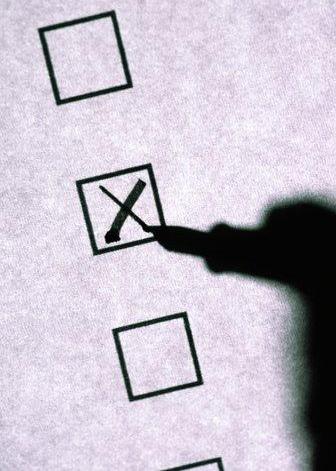Recently, there has been a lot of comment about the drop in the number of people registered to vote. But instead of just talking about it, I suspect most colleagues are looking for are practical suggestions as to how this can be remedied.

In my Borough of Sandwell, the Electoral Participation Officer has carried out research looking at whether 17-to-18 year olds who attend secondary schools in the area are registered to vote. Of the 16 schools in the borough, they chose 7 at random and surveyed 437 students. They found that of these 212 (48.5%) students were registered to vote and 225 (51.5%) weren’t.
This is particularly important because many of them will be eligible to vote before May.
The Electoral Participation Officer is going to go through data and identify the individual students, cross-referencing this information with the schools in the borough, to make sure that the date is accurate at the time. They are then going to work with the individual schools to find the best solution to ensure registration.
Three options they are looking at are:
1) Ask the students to bring their National Insurance numbers and register them online here
2) Given a pre-populated invitation to register to a teacher to distribute and then arrange collection of the forms
3) Post the pre-populated form to the address given and then monitor, this as per our usual practice (only to be used if the school are not helpful)
It’s usually better to register the students there and then, given the likelihood that they won’t return their forms. However we will work with the schools to find the best solution for that school.
They will then monitor these forms and records to make sure that they have an accurate number of how many students are actually registered in time for the elections in May.
These measures are, of course, on top of the regular actions that the council are carrying out to ensure a high level of data matching. That means checking with applicants when they engage with the council. So when they apply to go on the housing waiting list, housing council tax or when they use council services, there’s a check on them and their family to see if they’re registered to vote. If they aren’t but are eligible to vote then they’re actively encouraged to register.
This takes place alongside outreach activities at various events like at Citizenship Ceremonies – the Electoral Commission advise that an explanation of how to register to vote should be included in the pack given to those receiving British Citizenship.
All of these steps don’t take much time or many resources and are an effective check on malpractice. Yet the real change is one of mind-set; officers must see this as an ongoing process. That’s why I urge MPs and councillors to actively encouraging their councils to build these routines into the normal day-to-day work of their authorities.
John Spellar is the Labour MP for Warley




More from LabourList
‘Labour promised to make work pay. Now it must deliver for young people’
‘Council Tax shouldn’t punish those who have the least or those we owe the most’
Two-thirds of Labour members say government has made too many policy U-turns, poll reveals